

Site Copyright 2013
All Rights Reserved
090313
Part Seven: Blues for Skip James and Robert Boardman Vaughn, Bloodbuckets, "Brasilia," Justice, and Eliot’s Blues
Of Mississippi State, I know only that James Thomas Miller began his poetic apprenticeship with Richard Lyons there, also that Catherine Pierce has recently joined him. Miller left his native ground to study with Rodney Jones, Allison Joseph, and Jon Tribble at Southern Illinois University at Carbondale, when he first began producing work that caught my eye, then moved to Atlanta’s Georgia State, where 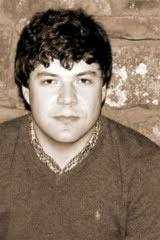 his poems continue to plow the Delta and sing its songs with ever-increasing depth and resonance. One of his—and Wilkinson’s—influences is Etheridge Knight, whose work is undergoing a revival because of a quartet known as “The Symphony,” comprised of the aforementioned R. Dwayne Betts, Randall Horton (The Lingua Franca of 9th Street, Main Street Rag), Marcus Jackson (Neighborhood Register, Cavankerry), and John Murillo (Up Jumped the Boogie, Cypher Press). Like Knight, Miller explores the juke joints and bars of Mississippi, as well as the world of farm labor. But there are significant differences: Miller is white, and the places where he listens to music have become so violent that “gutbucket” has been changed from metaphor to reality; some venues are now referred to as “bloodbuckets.” A pair of poems by Miller in a recent issue of Copper Nickel shows him wrestling once again with his doppelgänger, Ike Turner, whom Miller probably heard perform more than most in his last years, while a nonce sonnet evokes the human, vulnerable Side B of Skip James, who, like some of his latter-day descendants on the Fat Possum label, did hard time at Parchman for murder:
his poems continue to plow the Delta and sing its songs with ever-increasing depth and resonance. One of his—and Wilkinson’s—influences is Etheridge Knight, whose work is undergoing a revival because of a quartet known as “The Symphony,” comprised of the aforementioned R. Dwayne Betts, Randall Horton (The Lingua Franca of 9th Street, Main Street Rag), Marcus Jackson (Neighborhood Register, Cavankerry), and John Murillo (Up Jumped the Boogie, Cypher Press). Like Knight, Miller explores the juke joints and bars of Mississippi, as well as the world of farm labor. But there are significant differences: Miller is white, and the places where he listens to music have become so violent that “gutbucket” has been changed from metaphor to reality; some venues are now referred to as “bloodbuckets.” A pair of poems by Miller in a recent issue of Copper Nickel shows him wrestling once again with his doppelgänger, Ike Turner, whom Miller probably heard perform more than most in his last years, while a nonce sonnet evokes the human, vulnerable Side B of Skip James, who, like some of his latter-day descendants on the Fat Possum label, did hard time at Parchman for murder:
Skip James: February 1931
Dime store fedora, crack-toed brogans,
brown sportscoat slack as a burlap sack,
he’s all duded up outside the depot in Jackson
with 13 dollars and a guitar worth less than its case,
sure the next train will take him across the Ohio
to the snow-blue prairie suburbs of Milwaukee,
where those men from Paramount guarantee
easy cash and smuggled Canadian Club.
The Pullmans whinny into the station.
He shows his ticket, How cold is it up north?
The porter smiles, points at the colored car.
Skip nods, boards as rill of dove-gray steam
curtains the door. He stops, then thinks,
different question, same answer as before.
 Surely this poem exemplifies the truth of Jones’s words about his former student, who has also published in Blackbird, the Missouri Review and storySouth: “He is one of the most brilliant of the young Southern poets. He is at once rowdy and civil, and everything he writes bares the character of a man who, while immersed in the present, is acutely aware of the beautiful and difficult weight of history.”
Surely this poem exemplifies the truth of Jones’s words about his former student, who has also published in Blackbird, the Missouri Review and storySouth: “He is one of the most brilliant of the young Southern poets. He is at once rowdy and civil, and everything he writes bares the character of a man who, while immersed in the present, is acutely aware of the beautiful and difficult weight of history.”
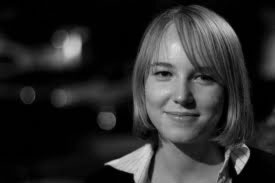 You’d be hard-pressed to know that Ashley Anna McHugh, who combines a conversational tone with formal precision, is now studying at Hannah’s alma mater, the University of Arkansas, on the other side of T. S. Eliot’s river and up in the Ozarks. From Ohio to Boston to Fayetteville? Why?
You’d be hard-pressed to know that Ashley Anna McHugh, who combines a conversational tone with formal precision, is now studying at Hannah’s alma mater, the University of Arkansas, on the other side of T. S. Eliot’s river and up in the Ozarks. From Ohio to Boston to Fayetteville? Why?
While she described her decision to further her education in this locale as owing to encouragement in received forms, I couldn’t have found the source of a more explicit answer in “Shepherd Road,” from her New Criterion Poetry Prize winner, Into These Knots (Ivan R. Dee, 2010):
Eventually, I grab the back-door key
from the cup-holder, slip a folded list
into my pocket. Inside, I dig through closets
to find the lincoln logs, the cardinal statue,
the clock shaped like an elephant, a kettle—
but the whole time I half expect to hear her:
the careful shuffle of her slow, flat feet;
her walker's unpredictable clap; her voice
trembling with evangelical vibrato.
Beside the bed, I find a King James Bible,
her careful marginalia penciled in:
Glory! Glory! Amen! I set it down.
I shouldn't want it just because it's hers.
What knots are more tightly entangled than those of faith and family, the boundaries between them as inseparable as those tying us to each other and to something beyond? As for her daunting use of a form  recently deployed with virtuosic expertise by Louisiana Poet Laureate Julie Kane, Beth Gylys, Brian Spears (see “Not-Summer” in A Witness in Exile), I came upon Luke Hankins, another Southern villanelliste extraordinaire, and saw that he’d has taken note of McHugh’s “All Other Ground is Sinking Sand,” a poem whose title comes from the hymn and addressed to her dying father, Hankins remarks:
recently deployed with virtuosic expertise by Louisiana Poet Laureate Julie Kane, Beth Gylys, Brian Spears (see “Not-Summer” in A Witness in Exile), I came upon Luke Hankins, another Southern villanelliste extraordinaire, and saw that he’d has taken note of McHugh’s “All Other Ground is Sinking Sand,” a poem whose title comes from the hymn and addressed to her dying father, Hankins remarks:
...the initial repeating line of the poem, —which, in McHugh’s oh-so-slight variation on the dictates of the villanelle form, serves as the closing line of the poem rather than the penultimate—began as a complete phrase from the King James version of what is commonly called “The Lord’s Prayer,” unimpeded by punctuation: “Thine be the kingdom and the power and the glory.” As the poem progresses, it gets shortened first to “Thine the power, and the glory,” and then finally it is expanded again, but rhythmically chopped even further into fragments: “So, Thine be the kingdom. Thine, the power. Thine, the glory.” Here, where the speaker has adopted the father’s prayer as her own despite her lack of faith, the italics have disappeared. This is no longer merely a quotation—from the Bible, from the speaker’s father—but the prayer has become, somehow, paradoxically, her own. McHugh has given us a powerful, compact exploration of faith’s link to love, of the way devotion leads to devotion—devotion to her father moving the speaker toward the divine.
There’s another famous poem in which that phrase is fractured, but written by the recent mother of a son: Plath again, this time in “Brasilia,” a futuristic metropolis planned and first developed in 1956. Divided into various districts and “satellite cities,” viewed from above, Brasilia has been described as resembling a butterfly, a plane, or a dove, the latter being a traditional symbol of the Holy Ghost. Plath’s own prayer rejects devotion as further servitude to a religion deriving from paternal infanticide. Notice the stanzaic arrangement: if not a villanelle, Plath too makes use of a three-line structure, perhaps intended to call the Trinity to mind.
O You who eat
People like light rays, leave
This one
Mirror safe, unredeemed
By the dove's annihilation,
The glory
The power, the glory.
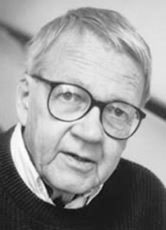 Donald Justice, unlike Plath in “Brasilia,” chooses a form of man-made annihilation for a villanelle I’ve long believed stands with the much better-known “Do Not Go Gentle Into That Good Night” and “One Art” as among the last century’s three best: “In Memory of the Unknown Poet, Robert Boardman Vaughn”*; however, both Plath and Justice use the same word to bring their poems to a close. So many of Justice’s friends seemed to fall down-and-out that Vaughn becomes a doppelgänger as well as a means of bearing out Eliot’s epigraph: “But the essential advantage for a poet is not, to have a beautiful world with which to deal: it is to be able to see beneath both beauty and ugliness; to see the boredom, and the horror, and the glory.”
Donald Justice, unlike Plath in “Brasilia,” chooses a form of man-made annihilation for a villanelle I’ve long believed stands with the much better-known “Do Not Go Gentle Into That Good Night” and “One Art” as among the last century’s three best: “In Memory of the Unknown Poet, Robert Boardman Vaughn”*; however, both Plath and Justice use the same word to bring their poems to a close. So many of Justice’s friends seemed to fall down-and-out that Vaughn becomes a doppelgänger as well as a means of bearing out Eliot’s epigraph: “But the essential advantage for a poet is not, to have a beautiful world with which to deal: it is to be able to see beneath both beauty and ugliness; to see the boredom, and the horror, and the glory.”
It was his story. It would always be his story.
It followed him; it overtook him finally—
The boredom, and the horror, and the glory.
Probably at the end he was not yet sorry,
Even as the boots were brutalizing him in the alley.
It was his story. It would always be his story,
Blown on a blue horn, full of sound and fury,
But signifying, O signifying magnificently
The boredom, and the horror, and the glory.
I picture the snow as falling without hurry
To cover the cobbles and the toppled ashcans completely.
It was his story. It would always be his story.
Lately he had wandered between St. Mark’s Place and the Bowery,
Already half a spirit, mumbling and muttering sadly.
O the boredom, and the horror, and the glory.
All done now. But I remember the fiery
Hypnotic eye and the raised voice blazing with poetry.
It was his story and would always be his story—
The boredom, and the horror, and the glory.
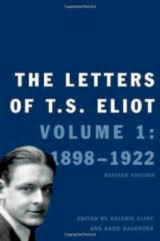 ”Glory”—a fitting word for the two volumes of Eliot’s correspondence recently published by Yale; that spanning 1898-1922 has been expanded from the original edition with new material. Though William Logan’s review in the New York Times Book Review seems rather sniffy—Logan suggested I substitute the word “spiffy,” but that’s for readers to decide—we agree that the frighteningly erudite but amusing Eliot would have been welcome at our dinner tables anytime. Though the letters themselves are a delicious success, I find particularly enticing his early predilection for green face powder and mascara.
”Glory”—a fitting word for the two volumes of Eliot’s correspondence recently published by Yale; that spanning 1898-1922 has been expanded from the original edition with new material. Though William Logan’s review in the New York Times Book Review seems rather sniffy—Logan suggested I substitute the word “spiffy,” but that’s for readers to decide—we agree that the frighteningly erudite but amusing Eliot would have been welcome at our dinner tables anytime. Though the letters themselves are a delicious success, I find particularly enticing his early predilection for green face powder and mascara.
Consider also Denis Donoghue’s essay on the subject: he begins with a quotation from Eliot, who once averred that most letters should be burned before sending. Donoghue agrees about two or three included here, especially a missive to Marianne Moore, but what the poet reads as husbandly protectiveness, the critic views as petulance: “Moore had the good grace not to press the issue [literary and personal mistreatment], and their association was soon restored. Eliot forgave himself, and contributed an appreciative Introduction to Moore’s Selected Poems (1935).” Knowing especially of Moore’s cruelty toward the young Plath, I find Donoghue’s words a bit sniffy too: would the author of Words Alone: The Poet T. S. Eliot, among the most penetrating and superb in the 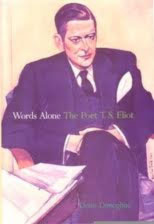 last two decades, truly prefer not to have the letter to Moore? If so, why did he quote it? Moreover, can’t mere scraps left behind by our favorite writers provide comfort and tutelage in the habit of art? What will we do once the epistolary age has vanished? NBA and NBCC nominee Bruce Smith, the author of this piece’s benediction, calls these questions essential, recalling where he was when he read the letters of Flaubert, Chekhov, Woolf, Faulkner, O’Connor, Sexton, and Plath; also where he heard authors read for the first time, e.g. Bishop and Lowell at the 92nd St. Y, in that famous appearance just before his death. So argue with Smith.
last two decades, truly prefer not to have the letter to Moore? If so, why did he quote it? Moreover, can’t mere scraps left behind by our favorite writers provide comfort and tutelage in the habit of art? What will we do once the epistolary age has vanished? NBA and NBCC nominee Bruce Smith, the author of this piece’s benediction, calls these questions essential, recalling where he was when he read the letters of Flaubert, Chekhov, Woolf, Faulkner, O’Connor, Sexton, and Plath; also where he heard authors read for the first time, e.g. Bishop and Lowell at the 92nd St. Y, in that famous appearance just before his death. So argue with Smith.
Or with Louis Menand, whose New Yorker essay about Eliot’s letters is actually a biographical overview emphasizing Eliot as master manipulator. If he sought, in his later years, to hide permanently behind a mask of far-right conservatism in politics and religion, it was too late: Ol’ Possum’s cat was already out of the bag.
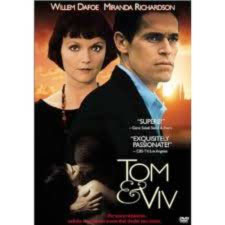 Eliot gave rise, in America, to the New Critics, but remember that Randall Jarrell, the best mid-century proponent, was trained both in “close reading” and psychology, thus he spotted clues that had been present from the start. What even Menand neglects to quote is the most salient part of Eliot’s famous remark on the necessity of poetic “impersonality”: “only those who have personality and emotions know what it means to want to escape from those things.” An immersion in these two volumes of letters—which also include correspondence from his mother and his first wife, Vivienne Haigh-Wood—makes clear just how much Eliot needed some passage out of domestic chaos for which he was consummately ill-prepared. If his abandonment of “Viv” was undeniably cruel, and his later politics seem deplorable, think about some of Mary Gaitskill’s words on Nat Turner before you judge The Waste Land’s author too harshly. Or read the poem again: in his own Paris Review interview, Eliot indicates that the slender amount of work he’d accomplished hadn’t been worth the pain that provoked it, but how many of us would trade what he left behind for a biography full of crumpets and tea by the fire, even “the evening with the photograph album?”
Eliot gave rise, in America, to the New Critics, but remember that Randall Jarrell, the best mid-century proponent, was trained both in “close reading” and psychology, thus he spotted clues that had been present from the start. What even Menand neglects to quote is the most salient part of Eliot’s famous remark on the necessity of poetic “impersonality”: “only those who have personality and emotions know what it means to want to escape from those things.” An immersion in these two volumes of letters—which also include correspondence from his mother and his first wife, Vivienne Haigh-Wood—makes clear just how much Eliot needed some passage out of domestic chaos for which he was consummately ill-prepared. If his abandonment of “Viv” was undeniably cruel, and his later politics seem deplorable, think about some of Mary Gaitskill’s words on Nat Turner before you judge The Waste Land’s author too harshly. Or read the poem again: in his own Paris Review interview, Eliot indicates that the slender amount of work he’d accomplished hadn’t been worth the pain that provoked it, but how many of us would trade what he left behind for a biography full of crumpets and tea by the fire, even “the evening with the photograph album?”
*See Villanelles, eds. Annie Finch and Marie-Elizabeth Mali (Random House / Everyman’s Library), in which the Justice and Kane poems are side by side.
071412 1448
